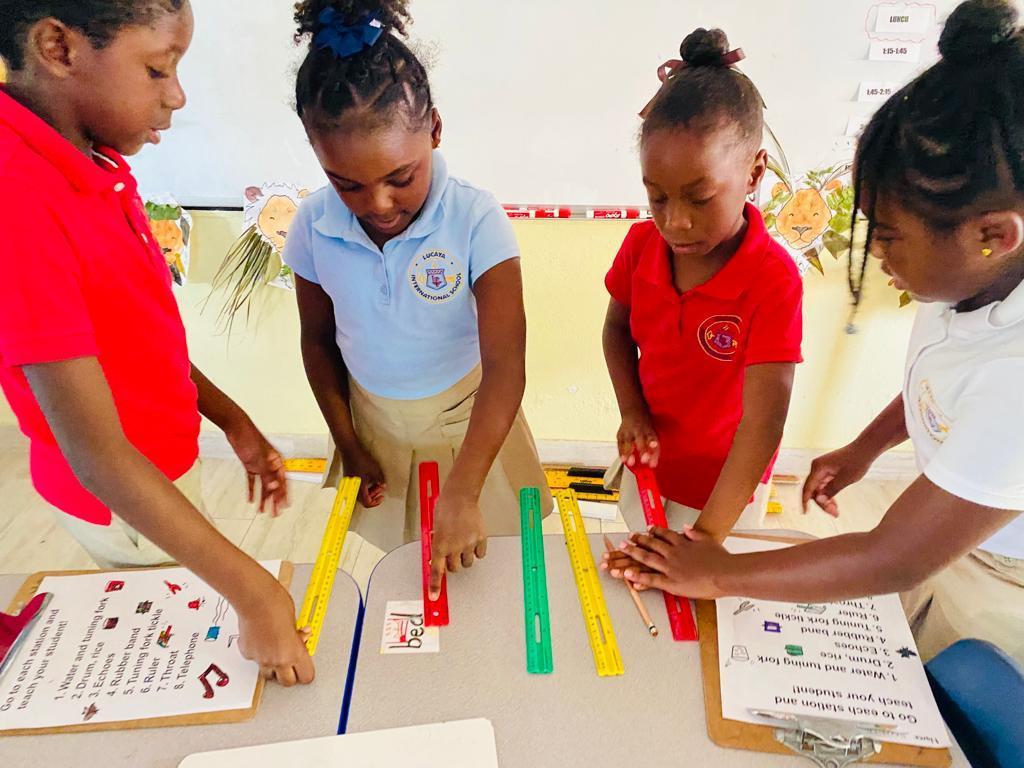Primary School

Primary School: The International Baccalaureate Primary Years Programme
The Primary department at LIS follows the philosophy of the International Baccalaureate (IB) Primary Years Programme (PYP) which was originally started in 1997. LIS has been authorized by the International Baccalaureate Organization to teach the PYP program since 2003.

The Best Preparation for Learning and Life
The PYP aims to help students develop the skills, knowledge, and attitudes they need to excel in their studies as well as their personal growth. The PYP is offered by over 1250 schools in 106 countries around the world. The PYP focuses on cultivating problem solvers who can think creatively, to develop young people who have compassion and will make the word a better place.

The PYP program at LIS develops academic and personal skills that will allow a child to be happy and successful in school and in life. LIS offers boundless educational experience for both Bahamian and international students, pre-kindergarten through year 6. Our school provides children with an internationally based curriculum, small class sizes and a nurturing environment intended to prepare and encourage students to become life-long learners.

Our students
- learn through inquiry within a concept driven curriculum
Students are encouraged to explore and learn by asking questions and engaging in inquiry-based learning.
- build on prior knowledge when learning new things:
This principle emphasizes the importance of connecting new information and skills to what students already know. It recognizes that learning is a cumulative process.
- have opportunities to learn individually and collaboratively:
Students are given the chance to learn independently when appropriate, but also in partnerships or groups, fostering both self-directed learning and teamwork.
- are competent individuals with a voice and opinions:
Students are encouraged to develop their competence in various areas and are empowered to express their thoughts and opinions. It promotes critical thinking and self-expression.
- get support in their journey to become autonomous learners:
LIS provides guidance and resources to help students become independent and self-motivated learners. This includes developing skills like self-regulating and goal setting.
LIS encourages the inquiry approach to learning and places an emphasis on making sure the students understand and grasp the knowledge and skills they need to be responsible, independent learners. We not only encourage parent and community involvement, but we also believe it is a fundamental practice for students' success. The Primary Years Program allows the school to meet the individualized needs of each student and optimize their learning experience.

Our students can...
- collaborate to make positive contributions to their class, school and wider community:
LIS highlights the importance of teamwork and community involvement. Students are encouraged to work together to create a positive and supportive learning environment and extend their positive impact beyond the classroom.
- use language to communicate effectively:
Effective communication is a fundamental skill. At LIS students are expected to be proficient in using language to express their ideas, thoughts, and feelings clearly and confidently.
- think critically and apply knowledge and skills in a variety of situations:
Critical thinking involves the ability to analyze information, evaluate arguments and make reasoned decisions. Students are encouraged to apply what they have learnt to real-life situations and adapt their knowledge and skills as needed.
- display high levels of organization, resilience and perseverance:
These are essential life skills. Being organized helps students manage their tasks and time efficiently. Resilience and perseverance enable them to overcome challenges and setbacks which are crucial for personal and academic growth.
- value research and lifelong learning:
Encouraging students to appreciate research and embrace lifelong learning indicates a commitment to fostering a growth mindset. Students are expected to seek out new knowledge and information beyond the classroom and understand the importance of continuous learning throughout their lives.
These expectations and values provide a well-rounded approach to education, focusing not only on academic achievement but also on the development of essential life skills, character traits and a sense of social responsibility.
